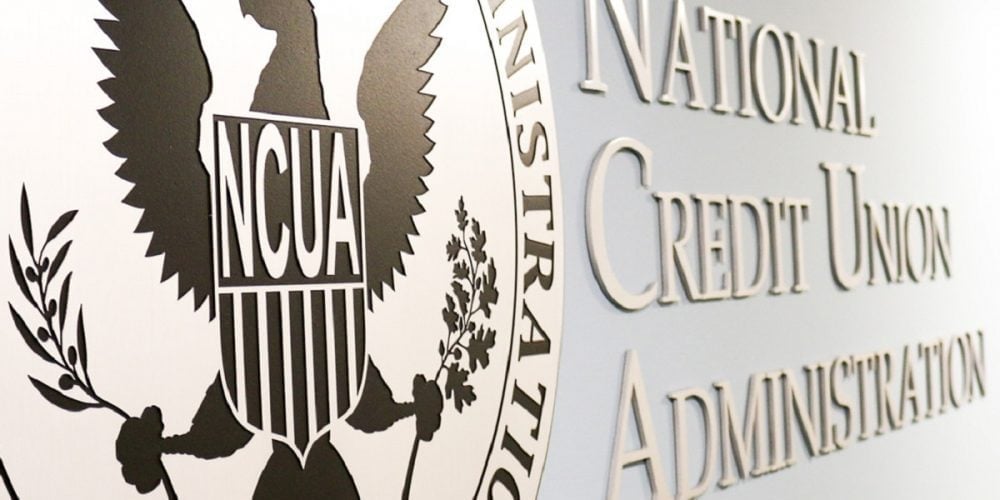When a male colleague tells me I face some challenges that he doesn’t, but at least I have it better than his mother did, that feels a lot like mansplaining.*
Yes, I am grateful I was born in a time when women can vote, access credit, rent a home, and be paid the same wage for equal work (oh… wait...not that one, actually…), but I do not aspire for relatively fair treatment. Equality is absolute, not relative, and the insinuation that over half of the population should be thankful things aren’t as bad as they used to be limits the progress we are capable of.
In defense of people who try to relate to something they have not lived, I admit I was weak in my effort to advocate for gender balance until I experienced the downside firsthand. Early in my career, I saw credit unions as leaders in opportunities for women. The Global Women’s Leadership Network emerged to great fanfare. I was managed and mentored by strong female leaders. When I was eventually hired by a man, it was to join an executive team that was equally split male-female at a credit union run by a gender-balanced Board of Directors. As an individual, I was valued for my unique talents—even recognized by an industry trade publication as a “Woman to Watch.” Our industry showed interest in the advancement of women.
Becoming a CEO changed my view. When I reached that higher-level position, I often found myself to be one of the only—or the only—woman in the room and I felt the weight of being an unproven outlier rather than a trailblazer. I wrote about it here, spoke about it here, and had many discussions with male colleagues about the cause and effect of gender imbalance.
At first, I worried about championing this message. I did not want to be a single-issue advocate. My calling was strengthening credit unions, not empowering women. I had not studied women’s history, started a petition, or attended a rally. Others had been intentional in their efforts for equality, while I stumbled into this role so casually that I questioned my qualifications. In fact, after agreeing to a speaking engagement on the topic, I enrolled in a certification program to prove I knew about being a woman in leadership. By then, I recognized how gender balance would make stronger credit unions.
As a CEO, strategic planning consultant, and executive recruiter, I spend a lot of time talking to leaders. There is universal concern about a widening talent gap as more people opt out of traditional 9-to-5 careers and into entrepreneurship. As a result, small credit unions especially struggle to find CEOs and succession planning by merger is on the rise. For a sustainable future, we need an exceptional talent pool and it cannot exclude over half of the population.
While the certificate was likely unnecessary (and perhaps symptomatic of the Imposter Syndrome*), I completed the requirements with a new understanding: Women will not achieve inclusion without support from men, especially through mentorship.
When male CEOs advocate for gender balance, they do not bring experience of being a woman in leadership. Most have not suffered the growing pains of being the first or only representative of an entire demographic. This can draw that uncomfortable label of mansplaining, but it is exactly why their voices are necessary. White, male CEOs are mainstream. They do not need qualifiers* before the word CEO, they are the universal leader, easily received even by audiences who don’t look like them. When they share the business case for gender balance, it is not met with skepticism. It never should be: Study after study shows stronger financial performance when women are part of leadership teams.
When men move beyond talking about the issue to taking action through mentorship, women excel. They apply for higher positions, earn more income and get promoted more quickly. Just like organizations do better with balance, women thrive when they incorporate male perspective in career planning, negotiations, networking, and self-promotion.
Expanding male-to-female mentorship is not as simple as serving on a panel at a women’s leadership event, including a woman in your next golf outing, or making sure female candidates get consideration in executive searches. It will take a highly intentional approach, a commitment from both sides about what it will and will not entail, and shared understanding of mentorship objectives. It requires one-on-one time between men and women to build the rapport necessary for candid conversation.
In a time when this is critically important, the #MeToo movement should have instilled a sense of responsibility in men and women to come together in stronger professional relationships. Instead, men have become more reluctant about spending time alone with and mentoring or coaching women. A July 2018 Harvard Business Review article presented survey results in which 65% of men indicated they feel “less safe” mentoring or coaching members of the opposite sex now than before the rise of #MeToo.
I wonder…How many men just read that section and recognized themselves and their own hesitation to be alone with a female colleague? #MeToo has been eye-opening: While women have come to realize they should not accept objectification in the work place, men have engaged in their own self-reflection. The same survey found that half of male respondents have done something in the past that today might be labeled as sexual harassment or misconduct. Doing no favors for how women are regarded as professionals, there is an additional perception now that, “Managers are not holding females as accountable to policies as they should — giving them a pass for fear of being accused of gender bias.”
This should be alarming. A movement that was meant to advance equality in the workplace has led to stronger division of the sexes. I am not shocked by this, but I do not want to accept it as an inevitability. Our industry is at a critical juncture, faced with an opportunity to be what I thought it was when I started my career.
The time for talking, for panel discussions, for separate networking events has passed. We know the case for inclusion. Now, let’s move together toward meaningful mentoring relationships where men and women come together without discomfort, awkwardness, or fear of false accusations.
*A quick glossary:
Mansplaining: When a man comments on or explains something to a woman in a typically condescending or oversimplified way, especially when the explainee knows more about the topic than the explainer.
Feminism: Advocating rights for women equal to those of men.
Imposter Syndrome: When an individual doubts their accomplishments and fears being exposed as a fraud, regardless of evidence of competence.
Qualifiers: The words I find myself adding in front of CEO if the position is held by anything other than a white guy over about 40. E.g. Female CEO, Black CEO, Young CEO. As a side note, I really wish I didn’t.








